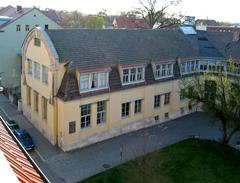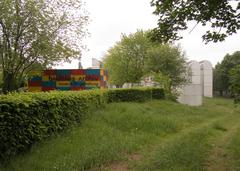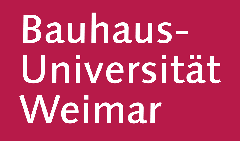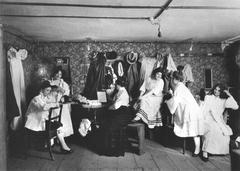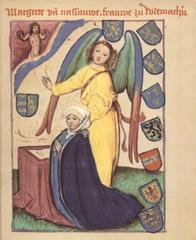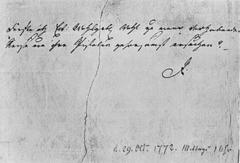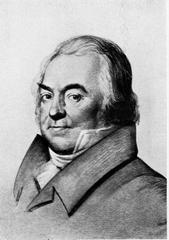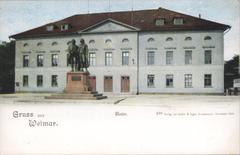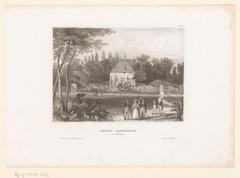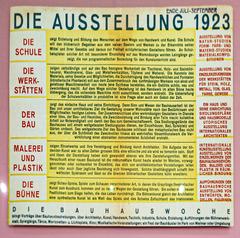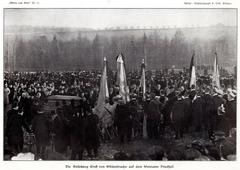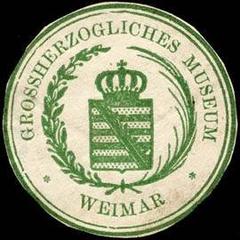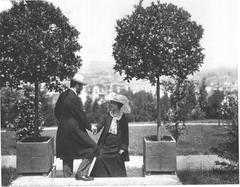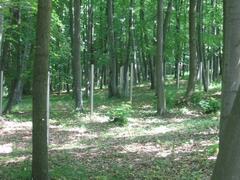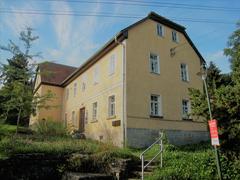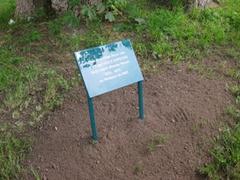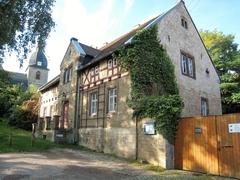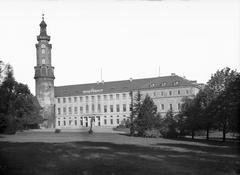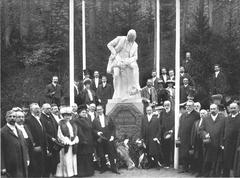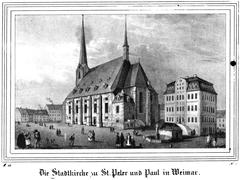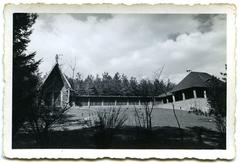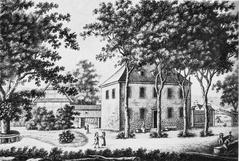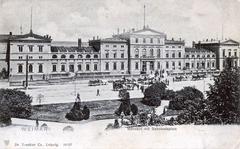Museum Für Ur- und Frühgeschichte Thüringens: Visiting Hours, Tickets, and Weimar Historical Sites Guide
Date: 15/06/2025
Introduction
Located in the heart of Weimar, Germany, the Museum Für Ur- und Frühgeschichte Thüringens (Museum of Pre- and Early History of Thuringia) invites visitors on a captivating journey through 400,000 years of regional human history. Housed in an elegant neoclassical mansion from the late 18th century, the museum is the only archaeological specialist institution in Thuringia, renowned for its vast collection, innovative displays, and commitment to accessibility. This comprehensive guide provides essential information on visiting hours, ticketing, accessibility, highlights of the collection, educational programs, and other practical tips to enhance your visit to one of Weimar’s most significant cultural landmarks.
Table of Contents
- Introduction
- History and Significance
- Visiting Hours and Ticket Information
- Location, Accessibility, and Facilities
- Permanent Exhibition Highlights
- Educational and Family Programs
- Special Exhibitions and Events
- Visitor Services and Amenities
- Nearby Weimar Attractions
- Practical Travel Tips
- Frequently Asked Questions (FAQ)
- Conclusion and Call to Action
- References and Further Reading
History and Significance
The Museum Für Ur- und Frühgeschichte Thüringens is a cornerstone for the study, preservation, and communication of Thuringia’s archaeological heritage. Its collections range from Lower Paleolithic hominid remains—such as the notable Bilzingsleben Homo erectus finds—to Neolithic, Bronze, Iron Age, and early medieval treasures. Since its founding in 1892 and subsequent transformation into a specialist archaeological museum in 1953, the institution has served both as a research hub and as a vibrant educational venue. Its partnership with the Thuringian State Office for Monument Preservation and Archaeology ensures the museum’s active role in fieldwork, conservation, and public outreach (ResearchGate).
Visiting Hours and Ticket Information
Standard Opening Hours:
- Tuesday to Sunday: 10:00 AM – 5:00 PM
- Closed: Mondays and select public holidays
Special Opening Hours: During events such as the “Lange Nacht der Museen,” extended hours may apply.
Ticket Prices:
- Adults: €6–€7 (depending on exhibition)
- Reduced (students, seniors): €3–€4
- Children under 6: Free
- Family tickets and group discounts available
- Free entry for WeimarCard holders and students/teachers during class visits
Where to Buy: Tickets can be purchased at the museum entrance or online via the official website (Museum Für Ur- und Frühgeschichte Thüringens).
Location, Accessibility, and Facilities
Address: Humboldtstraße 11, 99423 Weimar
Entrance: Main access via Amalienstraße
Public Transport: Bus lines 1, 5, 6, 8 (Posseckscher Garten stop, 60m away)
Cycling: Located along the Ilm-Rad-Weg and Thüringer Städtekette cycle routes
Parking: Nearby parking, including spaces for disabled visitors; advance arrangements for groups possible (weimar.de)
Accessibility Features
- Step-free and barrier-free access via ramps and elevators
- Wheelchair-accessible restrooms with emergency call features
- Tactile guidance, audio guides, and sign language support for visually and hearing-impaired guests
- Assistance dogs permitted; accessible guided tours available on request
- Certified “Reisen für Alle” inclusive environment (alt-thueringen.de)
Facilities
- Ticket counter and information desk on ground floor (ramp or two-step access)
- Refreshments via vending machines; picnic area in courtyard and adjacent Poseck’schen Garten
- Family playground next to museum
- Free Wi-Fi, cloakroom, gift shop
Permanent Exhibition Highlights
The museum’s 1,000 m² of exhibition space houses over 3,000 original artifacts in 26 rooms, providing a chronological and thematic journey through Thuringia’s prehistory and early history:
Paleolithic and Neanderthal Finds
- Bilzingsleben Homo erectus remains and tools (ca. 370,000 years old)
- Ehringsdorf Neanderthal artifacts and hunting implements (ca. 230,000 years ago)
- Insights into early human adaptation and survival (Annee de Pelerinage, alt-thueringen.de)
Neolithic Revolution and Early Settlements
- Pottery, agricultural implements, and models illustrating the shift to farming and settled life (ca. 7,500 years ago)
- Finds from Linear Pottery and Bell Beaker cultures (Academia.edu)
Bronze and Iron Age Treasures
- Bronze swords, axes, and gold jewelry demonstrating craftsmanship and trade networks
- Artifacts from burial mounds and settlement sites
Early Historic and Medieval Artifacts
- Grave goods, weapons, and Christian relics tracing the region’s integration into medieval Europe
- Items from key sites like Westgreußen and Sondershausen-Bebra (museen.de)
Immersive and Interactive Presentation
- Life-size reconstructions: Neanderthal camp, Neolithic houses, and burial mounds
- Hands-on exhibits and workshops: Replica tools, crafts, simulated excavations
- Multimedia installations: Animated films, touchscreens, and audio guides
- Thematic zones and clear navigation: Color-coded sections and accessible signage
Educational and Family Programs
- “Museumskoffer” (museum suitcase): Outreach program bringing replicas and learning materials to schools and community groups
- Workshops and special programs: Including hands-on archaeology, prehistoric crafts, and music-making for children and families (nachtdermuseen.com)
- Interactive “Stone Age Rally” for children aged 12+
- Guided tours: Available in multiple languages, with specialized options for accessibility (alt-thueringen.de)
Special Exhibitions and Events
- Regularly changing special exhibitions highlight recent archaeological discoveries and thematic topics
- Events such as the “Lange Nacht der Museen” offer extended hours and interactive programming
- Seasonal workshops, experimental archaeology demonstrations, and family days (alt-thueringen.de)
Visitor Services and Amenities
- Audioguides and virtual tours: Enhance your experience before or during your visit (museum-digital.de)
- Photography: Permitted for personal use in most areas (restrictions may apply to flash and tripods)
- Café and vending machines: For snacks and refreshments
- Gift shop: Offering archaeological-themed souvenirs and educational materials
Nearby Weimar Attractions
Enrich your cultural itinerary with visits to:
- Goethe National Museum
- Bauhaus Museum
- Schiller Museum
- Duchess Anna Amalia Library
- Weimar Palace (Stadtschloss) and Park
All are within easy walking or biking distance from the museum (whichmuseum.com).
Practical Travel Tips
- Best times to visit: Weekday mornings are generally quieter
- Advance booking: Recommended for group tours, educational programs, or accessible services
- Food and drink: No full-service café; consider nearby restaurants in Weimar’s old town
- Combine with cycling tours: The museum is on scenic regional cycling routes (alt-thueringen.de)
Frequently Asked Questions (FAQ)
Q: What are the museum’s opening hours?
A: Tuesday–Sunday, 10:00 AM–5:00 PM. Closed Mondays and certain holidays.
Q: How much do tickets cost?
A: Standard adult admission is €6–€7; reduced rates for students/seniors; children under 6 free.
Q: Is the museum accessible for visitors with disabilities?
A: Yes, the museum is barrier-free and offers accessible facilities, tours, and support.
Q: Are guided tours and workshops available?
A: Yes, in multiple languages and tailored for different audiences; advance booking recommended.
Q: Can I take photographs inside the museum?
A: Photography for personal use is generally allowed; flash and tripods may be restricted.
Conclusion and Call to Action
The Museum Für Ur- und Frühgeschichte Thüringens is a cultural gem that offers an immersive, accessible, and educational window into Thuringia’s prehistoric and early historic past. Its innovative exhibitions, comprehensive accessibility, and central location make it an essential destination for anyone visiting Weimar. For the latest updates on tickets, special events, and educational programs, consult the official museum website and stay connected via social media. Enhance your experience by downloading the Audiala app for guided tours and multimedia content.
Plan your visit today and discover the stories of Thuringia’s ancient inhabitants while exploring one of Germany’s most historic cities.
References and Further Reading
- Museum Für Ur- Und Frühgeschichte Thüringens in Weimar: Visiting Information, History, and Highlights (museum-digital.de)
- Museum Für Ur- und Frühgeschichte Thüringens in Weimar: Visiting Hours, Tickets, and Historical Insights (museum-fuer-ur-und-fruehgeschichte-thueringen.de)
- Discover the Museum für Ur- und Frühgeschichte Thüringens in Weimar: Exhibitions, Visiting Hours, Tickets, and More (ausflugsziele-weimar.de)
- Visitor Guide: Museum Für Ur- Und Frühgeschichte Thüringens Visiting Hours, Tickets, and Accessibility in Weimar (alt-thueringen.de)
- Weimar official tourist information (weimar.de)
- Museum of Prehistory and Early History of Thuringia (whichmuseum.com)
- Special events and exhibitions (nachtdermuseen.com)
- Archaeological education and outreach (Academia.edu)
- Research partnerships (ResearchGate)
- Things to do in Weimar (Annee de Pelerinage, Germany Footsteps)
